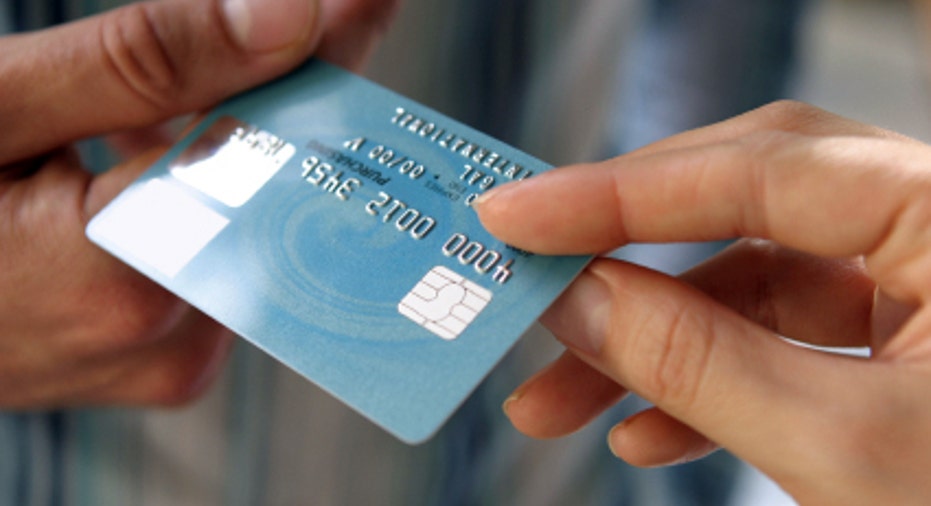Convenience Fees: When is it OK to Charge Extra to Use a Credit Card?

Paying with a credit card often yields rewards. But in certain situations those benefits come at a cost, not just through interest, but in the form of convenience fees.
Perhaps the key to understanding what convenience fees are is to understand what they are not. Convenience fees are not surcharges, which are costs added simply for the privilege of using a credit card. For example, if a pound of coffee costs $10, but a merchant charges you $12 if you pay with a credit card, the merchant has levied a $2 surcharge.
All credit card issuers frown upon surcharges (though most have no problem with offering a discount for using cash). "We believe that surcharging credit card purchases is harmful to consumers," says Molly Faust, a spokeswoman for American Express. "It is not a customer-friendly practice for a merchant to first attract a customer to its store or website to shop, and then to penalize the customer for using a charge or credit card that the merchant accepts." Surcharges are also illegal in 10 states: California, Colorado, Connecticut, Florida, Kansas, Maine, Massachusetts, New York, Oklahoma and Texas.
Convenience fees, on the other hand, are charges levied for the privilege of paying for a product or service using an alternative payment channel, or a payment method that is not standard for the merchant. Movie theaters, for example, typically sell tickets face to face in the box office. However, if a movie theater gives customers the alternative option of paying by phone using a credit card, then that theater could charge a "convenience fee" for the privilege. So technically, you're not paying for the privilege of using your credit card, but for the privilege of using the pay-by-phone option.
Card issuers' policies vary
When it comes to convenience fees, different card issuers have different policies.
- According to Visa's policy, certain criteria must be met in order for a merchant to charge a convenience fee: -The payment must take place across an alternative payment channel. -Customers must be told about the fee in advance. -The fee must be a flat or fixed price rather than a percentage of the sale. -The fee must be included in the total transaction amount. -The fee must be applied to all means of payment that are accepted in that alternative payment channel. However, tax payments don't have to meet all of those criteria. "While Visa regulations prohibit merchants from applying surcharges to normal transactions, we do permit our cards to be used for tax payments together with a convenience fee," says Ted Carr, a spokesman for Visa. The reasons for this distinction: Income taxes are government mandates, and federal statute prohibits the Internal Revenue Service from paying the costs associated with credit card acceptance, Carr adds.
- Like Visa, MasterCard outlaws surcharges. However, four years ago, the company created the MasterCard Convenience Fee Program for government agencies and educational institutions that were not accepting card payments at the time. "It was an effort for us to make sure that we were providing consumers with that choice in how they wanted to pay," says MasterCard spokesman Seth Eisen. Since the organizations can charge convenience fees, the cost of accepting credit cards is less prohibitive. However, they still must offer an alternative payment channel. MasterCard leaves the fee structure -- whether it's fixed, tiered or a percentage -- up to the organizations in the program.
- Under American Express's policy, "select transactions do qualify for convenience fees including taxes and tuition," says Faust. "However, a merchant must provide an actual convenience in the form of payment, for example, online payment, interactive voice response or a payment kiosk. The fee must also be clearly disclosed before the transaction is completed."
- While Discover doesn't have an official convenience fee policy, it requires that all credit cards be treated the same, says Kathryn Henry, a spokeswoman for Discover. As a result, the rules instituted by the other card issuers would apply to Discover since a merchant cannot levy a fee on a Discover cardholder that it isn't allowed to impose on a MasterCard, Visa or American Express cardholder.
Consumer complaints
Not surprisingly, many consumers are unhappy with convenience fees and believe merchants should eat the costs. "Paying by credit card is not a convenience for the customer," says Bob Johnson, a photographer and video producer in New York, NY. "It's a convenience for the company because the more ways that the company will accept payment the easier it is for them to make more profits."
Verizon recently felt the wrath of its customers when it announced that it would charge customers a $2 convenience fee if customers paid with credit or debit cards through the company's website or via telephone. The company later reversed its decision after a flood of complaints.
The only thing consumers can do to avoid legitimate convenience fees is to pay using the standard payment channel or stop patronizing merchants who charge the fees. However, consumers should always be on the lookout for surcharges by checking receipts and paying attention in the checkout line, says Carr.
If you've been issued a surcharge, contact your card issuer and give them the name and location of the merchant, says Carr.
If you live in one of the states where surcharges are illegal, contact the Consumer Financial Protection Bureau, says Dan Rosenfeld, a spokesman for the Massachusetts Office of Consumer Affairs and Business Regulation.
"We do not believe that consumers should have to pay a fee just to use their debit or credit card," says Carr. "It is unfair and wrong."



















